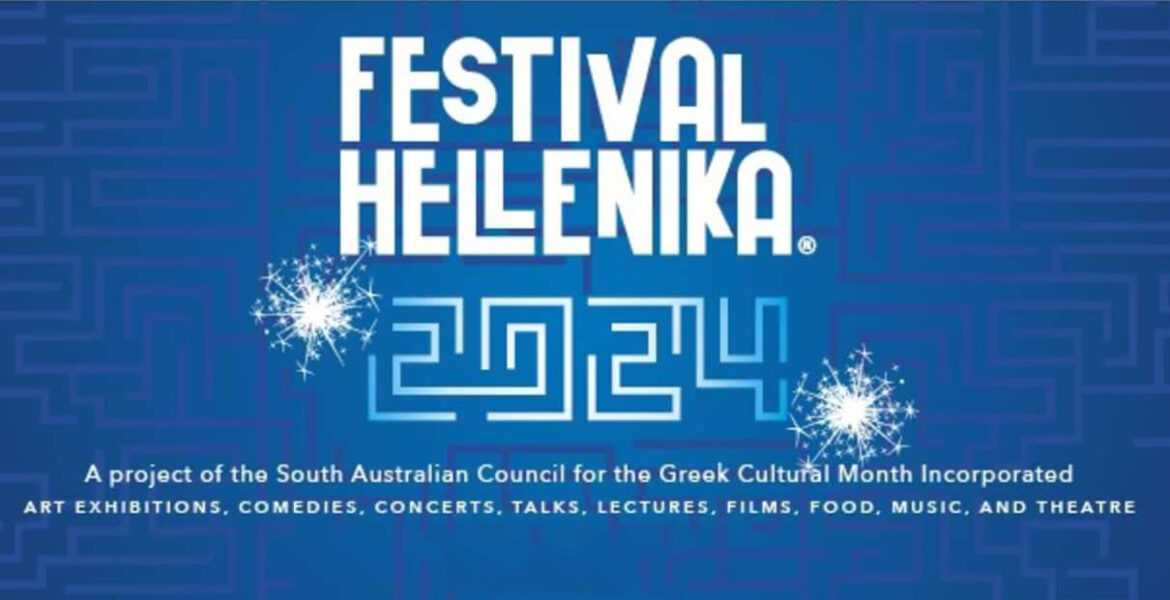Celebrating 33 years, the ‘Festival Hellenika’ in Adelaide is a multi-disciplinary arts festival dedicated to showcasing Greek arts and culture.
Standing as the cornerstone of South Australia’s cultural landscape, the gala is held annually from February through September. Established in 1991 with the support of the Consulate General of Greece in South Australia, the festival is a non-political, non-profit, independent organisation.
The recent sold-out showcase titled ‘Zeibekiko’ presented at the Dunstan Playhouse at the Adelaide Festival Centre, honoured this unique, soulful Greek dance steeped in folk tradition that captures the essence of Greek character.
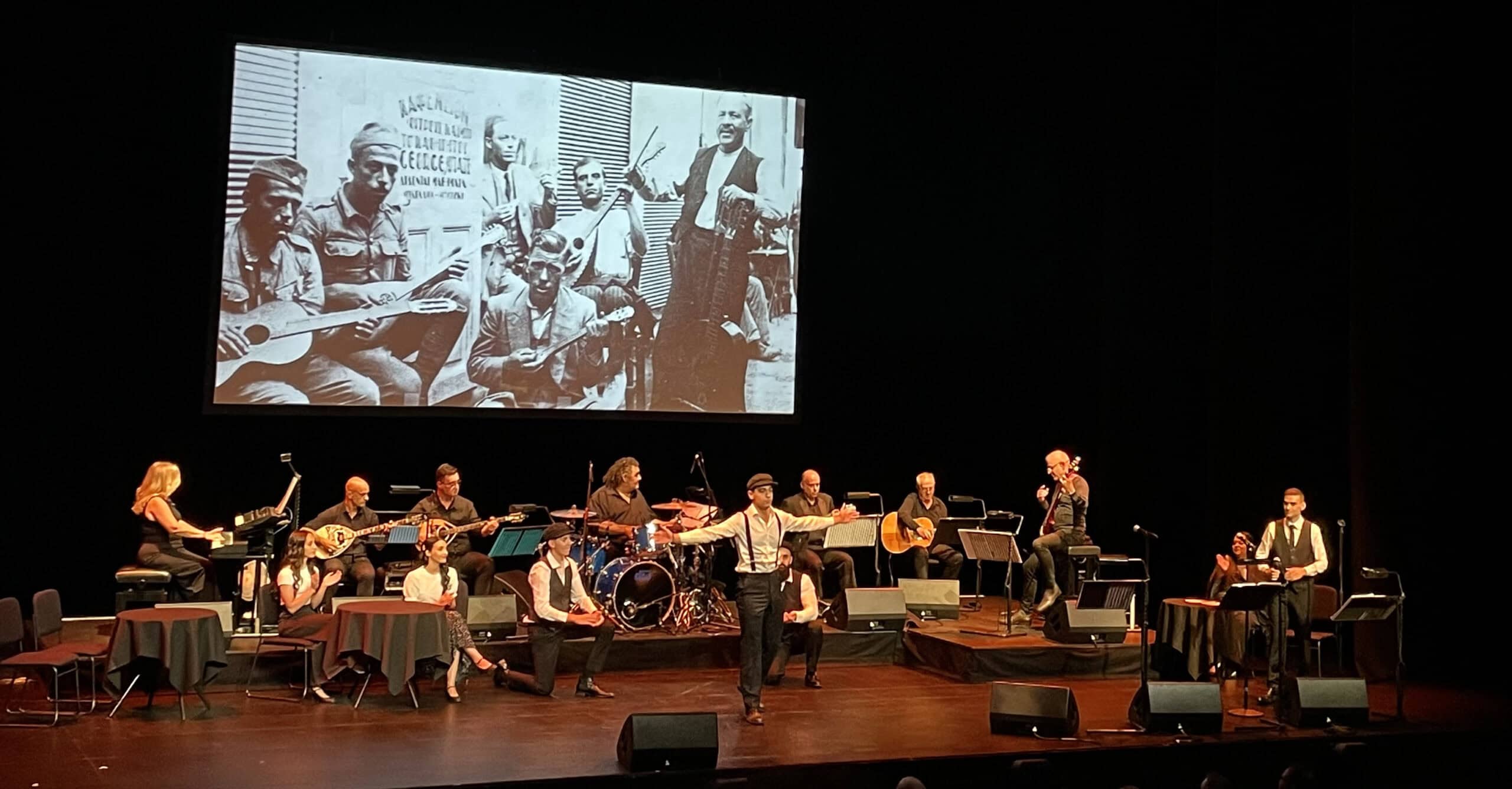
Perpetually the most popular dance of urban Greeks, the Zeibekiko has incited an eternal debate over its name, origin, and history, including how, where, and when it should be danced. A symphony of defiance and pride, interlaces a narrative of struggle and triumph to the geo-political climate of Greece at the time. Each step is a poetic testament to the indomitable will of its people, echoing through villages and cities alike, a timeless ode to the surviving spirit of Greece. Thousands of Zeibekika songs have been written and sung by Greece’s most famous composers, lyricists, and vocalists; millions have danced to them. This year’s enchanting festival concert brought an exceptional commemoration of this unique art form with an eclectic repertoire of songs and dances devoted to the human condition.
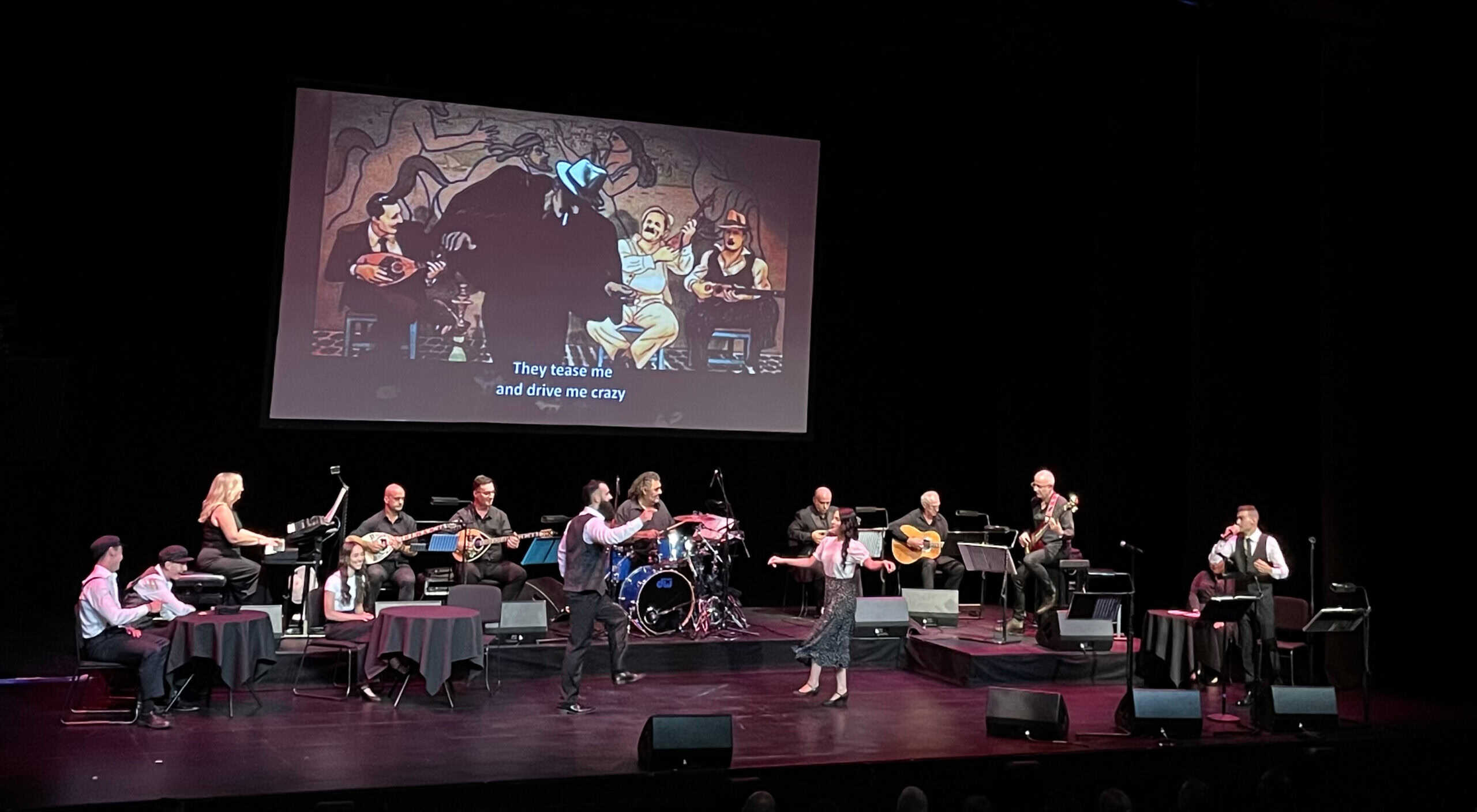
The musical ensemble consisted of Paul Gelios – musical director, Joanna Chrysostomou – vocals, Stamatis Dimitrakopoulos – vocals, Jim Mountzouris – vocals / baglama, Sofia Arhontoulis – piano, John Karpathakis – bouzouki, Andrew Harpas – bouzouki, Steve Papadopoulos – guitar, Stelios Capetanakis – drums. All the classic hits were performed, including Roza by Dimitris Mitropanos, To Savatovrado by Mikis Theodorakis, and To Zeibekiko Tis Evdokias by Manos Loizos. The Greek Orthodox Community of South Australia (GOCSA) Dance Academy, and The Messinian Greek Dance School furthermore danced alongside the live band recreating the bittersweet emotions of those struggling to accept the dismemberment of Greece during the tragic events that led to the evacuation of Asia Minor in the 1920s.
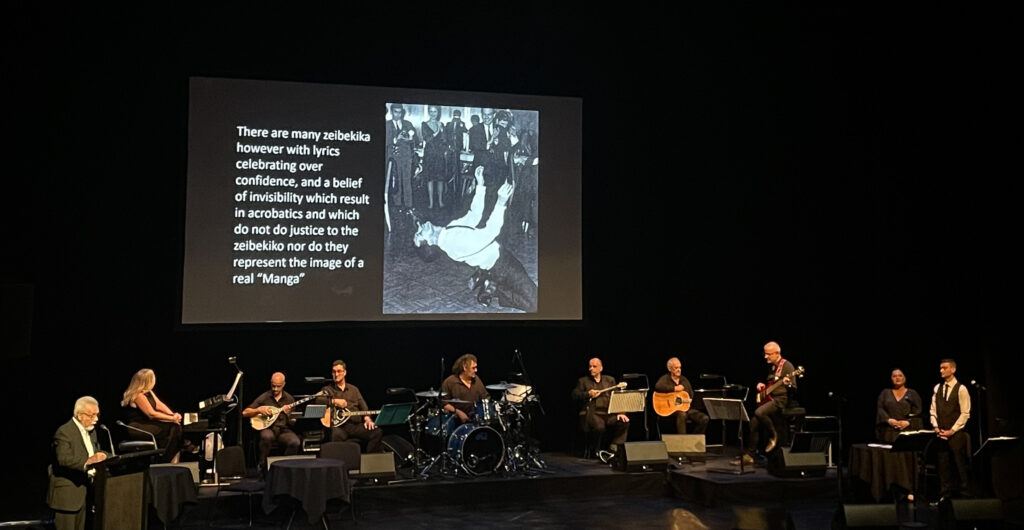
The program was narrated by Tassos Capetanakis in both Greek and English, expressing poignant philosophies about Zeibekiko’s history and culture. Several beguiling details included:
“The ‘Zeibeks’ lived specifically in the Erythrae peninsula, opposite the island of Chios… Described as having their own culture, wearing specific distinctive clothing, and often carrying weapons. They conflicted with the authorities of the Ottoman empire.”
“Many theories exist regarding the origins of the Zeibek tribe. Some, by Greek historians, claim that they were Greeks from Thrace who settled in West Anatolia and adopted the Islamic religion. These theories have not been verified.”
“In their festivities, they drank a lot and danced to a war dance, called ‘Zeybegi’. The Zeybegi is still performed today as a traditional Turkish dance. Inevitably the Greeks of Asia Minor, living in Smyrne and the surrounding areas, so close to the Zeibek country, adopted the Zeybegi dance with some changes, made it their own and called it Zeibekiko.”
A communion between man and melody transcended audiences to the sacred ritual of Zeibekiko’s sentiment and fluid movement. Symbolising warriors whose valour danced across Anatolia’s rugged terrain while their stories of sorrow, endurance, and rebellion elegantly unfurled.
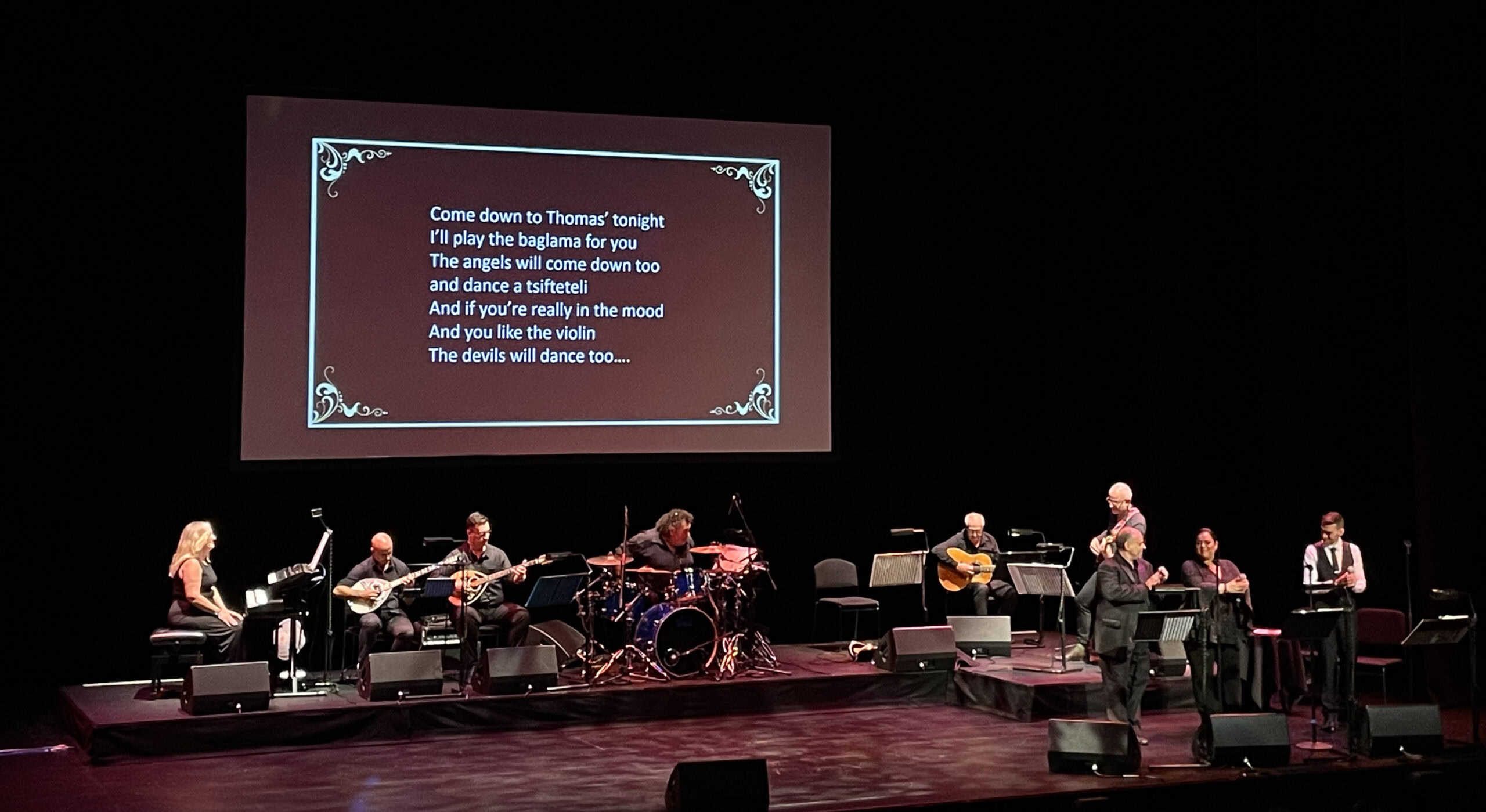
All upcoming Festival Hellenika events include:
Cooking with Helen from The Sweet Greek – 19th May.
Goddesses and Gods Walking Tour of Adelaide – 26th May.
Greek and Casual Art Tour – 1st June.
Mosaic Workshop – 2nd June.
‘Adelaide Arcadia’: Inspired by Ancient Greece – 5th September.
https://festivalhellenika.org.au/
(Photography courtesy of Evana Karapetis).

